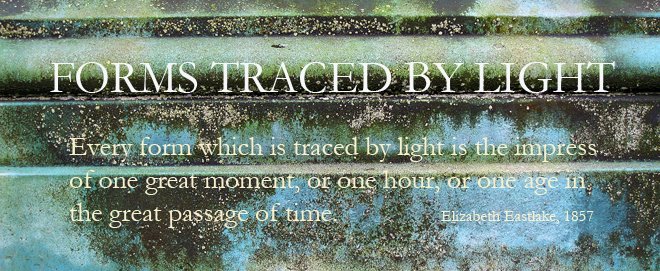This must be one of the first ever times that I've been truly grateful for someone dipping their head in front of my lens, but it's the perfect silhouette ... This is a huge barn - big enough to hold 40 horses and 40 mules - on the Stagville Plantation, or what's left of it. Once the largest plantation in North Carolina - 30,000 acres, 900 slaves - this is inside the Great Barn, built in the summer of 1860, and quite possibly the largest agricultural structure built by slaves in NC.

This was inside the slave quarters - a little row of them (below) have been preserved. One of the most remarkable things about the Stagville tour (conducted by a retired high school English teacher ...) was that it was a tour and approach that completely emphasized the slave experience, and that didn't attempt to exonerate their owners (or glorify plantation life, other, perhaps, the idea of communal meals out back here in the slave quarters, round a fire pit, and sharing corn or roast squirrel or whatever). It was made very clear that these 1850s upgrades of slave log cabins were designed to ensure better, more healthy living conditions - so that labor wouldn't be lost because of sickness. And due weight was given to the experience of sharecropping, too - economic as opposed to legal slavery, as the guide put it. I totally recommend this experience (it's about twelve miles north of Durham).

It's very striking that the plantation house was, relatively speaking, a modest one (a couple of slightly grander ones were built later on, for descendants, but this remained at the core of the enterprise).
It was an afternoon of complete fall beauty;
with those strange big fruits/seed pods that one gets on the east coast lying around, like pale green brains.
Googling Stagville this evening, it doesn't surprise me at all to find that there are numerous reports of hauntings on the plantation, especially in the Great Barn and in the slave quarters.



















































